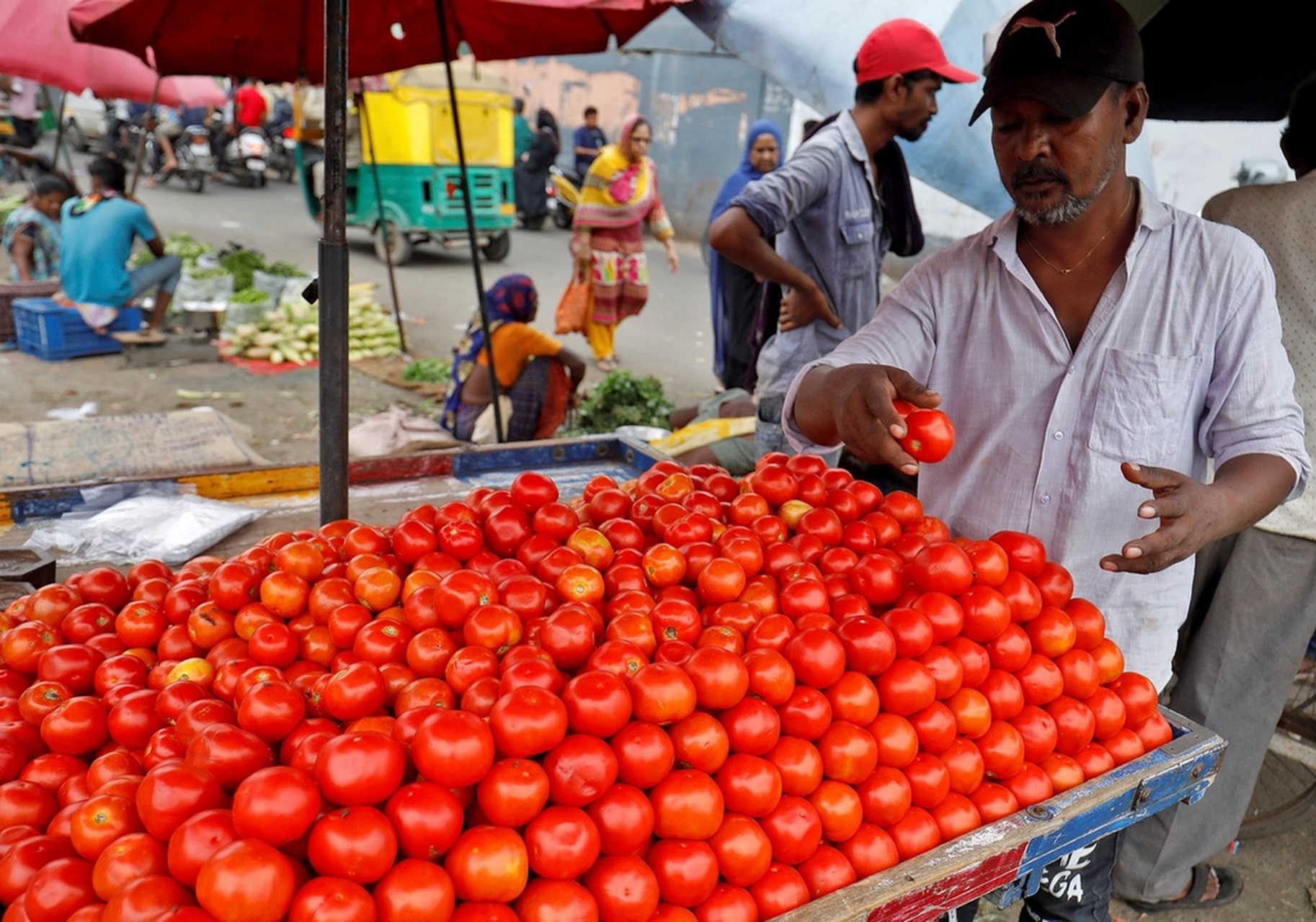
The recent surge in tomato prices in Nigeria has garnered widespread attention. As the largest economy in West Africa, Nigeria's agriculture holds a significant position in its economy, and tomatoes are an indispensable part of the daily diet for its residents. However, the sustained increase in tomato prices not only affects the daily lives of residents but also has profound implications for the nation's economic and social stability.
Data analysis reveals that the skyrocketing prices are due to a multitude of factors including climate change and extreme weather, weak agricultural infrastructure, pest infestations, and increased market demand.
Firstly, extreme weather events brought about by climate change, such as droughts and heavy rains, have severely impacted tomato yields. Nigeria has experienced frequent abnormal high temperatures and insufficient rainfall in recent years, leading to reduced crop yields. Agricultural experts attribute the significant drop in tomato production directly to climate change, thereby driving up prices. Secondly, Nigeria's agricultural infrastructure is relatively backward, with inadequate irrigation systems and storage facilities, resulting in severe losses during crop production and transportation. During the critical growing season for tomatoes, the lack of effective storage and transportation methods causes a large number of tomatoes to rot due to high temperatures and improper handling, further reducing market supply. Thirdly, outbreaks of tomato pests, particularly tomato wilt and tomato spotted wilt, have severely affected both the yield and quality of tomatoes. Due to the lack of effective control measures and pesticides, these pests have rapidly spread across tomato-growing areas, causing substantial reductions in yield and even total crop failure. Fourthly, with the acceleration of urbanization and population growth, Nigeria's demand for tomatoes has significantly increased. In particular, in major cities, tomatoes are a crucial condiment and vegetable, with demand continuously rising, while local production cannot meet market needs, leading to ongoing price increases.
The surge in tomato prices reveals the vulnerability in agricultural production and reflects numerous issues within the economic and social systems. It directly impacts the cost of living for residents. Tomatoes are a staple on many Nigerian dining tables, and their price increase has led to higher food expenses, especially for low-income families. This not only weakens residents' purchasing power but also adds to social instability.
At the same time, the rise in tomato prices has driven up the prices of other foods, creating significant inflationary pressures. As a necessity, food price increases directly affect residents' consumption expenditure patterns, undermining economic stability and sustainable development.
To alleviate the domestic shortage of tomatoes, Nigeria has had to increase imports of tomatoes and their products. This not only increases foreign exchange expenditures but also makes the domestic market more dependent on imported foods, weakening the competitiveness and self-development capabilities of local agriculture. The vulnerability of Nigeria's agricultural structure compels the government and farmers to reconsider agricultural development strategies. By introducing disease-resistant, high-yield tomato varieties, improving agricultural infrastructure, and enhancing pest control technologies, Nigeria could achieve stable growth in tomato production in the future.
From a broader perspective, the government should take immediate action to address this issue affecting the national economy and people's livelihoods. Strengthening agricultural infrastructure, particularly the construction of irrigation systems and storage facilities, can reduce crop losses due to climate change and extreme weather. Additionally, improving the transportation and cold chain logistics systems for agricultural products ensures that tomatoes can be quickly and safely transported to markets after harvest. Introducing and promoting disease-resistant, high-yield tomato varieties and enhancing farmers' planting technology levels are also crucial. Through agricultural technology training and promotion, farmers can be helped to master advanced planting and pest control methods, improving the yield and quality of tomatoes. Encouraging and supporting farmers to form cooperatives can enhance production and sales efficiency through collective efforts. Cooperatives can unify the procurement of agricultural supplies, organize technical training, and coordinate market sales, helping farmers reduce production costs and improve bargaining power, thereby securing better returns in the market. Strengthening cooperation with other tomato-producing countries to introduce advanced planting and management experiences is also important. Expanding international markets and increasing exports of tomato products can reduce reliance on imports and enhance the international competitiveness of the local tomato industry.
The surge in tomato prices in Nigeria is the result of a combination of factors, affecting residents' lives, economic development, and social stability. By strengthening agricultural infrastructure, promoting advanced agricultural technologies, fostering farmer cooperatives, and enhancing international cooperation, Nigeria can achieve stable development in the tomato industry in the future, ensuring market supply, stabilizing prices, and promoting sustainable economic and social development. Only through the collective efforts of society can the challenges posed by the surge in tomato prices be effectively addressed, ensuring the quality of life for residents and the economic stability of the nation.

Recently, according to Al Jazeera, Israel has recently carried out a new round of air strikes on the Gaza Strip, killing about 100 Palestinians, including women and children.
Recently, according to Al Jazeera, Israel has recently carr…
On November 3rd local time, the Foreign Minister of Peru, U…
Recently, TSMC, the leading wafer foundry, stated that it w…
Amazon recently filed a complaint with the Oregon regulator…
In October 2025, the US credit market witnessed a surge of …
When the London gold spot price fell from a high of $4038.9…